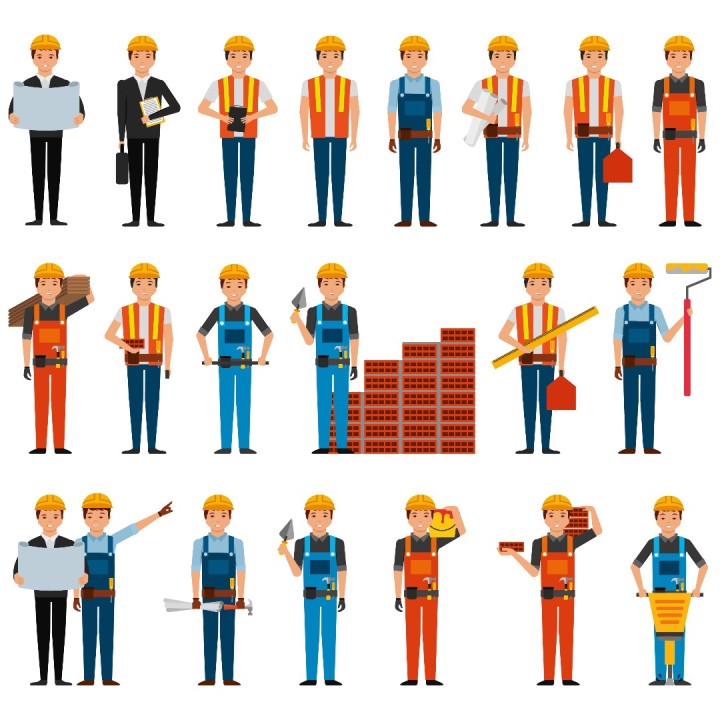Contents
Let’s rewind to the month of March 2020, when you heard the term “essential workers” for the first time. While some jobs were labeled essential, you must have noticed how it had nothing to do with how valued they are in society. For example, Jeff Bezos wasn’t an essential worker, but the truck driver at Amazon was. We simply used the term to differentiate the workers who turned up for their jobs in spite of the pandemic while the others could work in the comfort of their homes.
Healthcare professionals, retail staff, delivery folks, professional service technicians, factory workers, warehouse workers, and many more have laid out a cushion that was so comfortable that remote or hybrid work has become a reality for the rest of us.
Essential workers are all deskless workers!
An important class of workers who are omnipresent and provide us an unsung convenience. Their work impacts our lives on a daily basis, but they are not acknowledged enough. So learning about them and having a dialogue about the deskless work experience is one way to show our appreciation. Sharing this article is another.
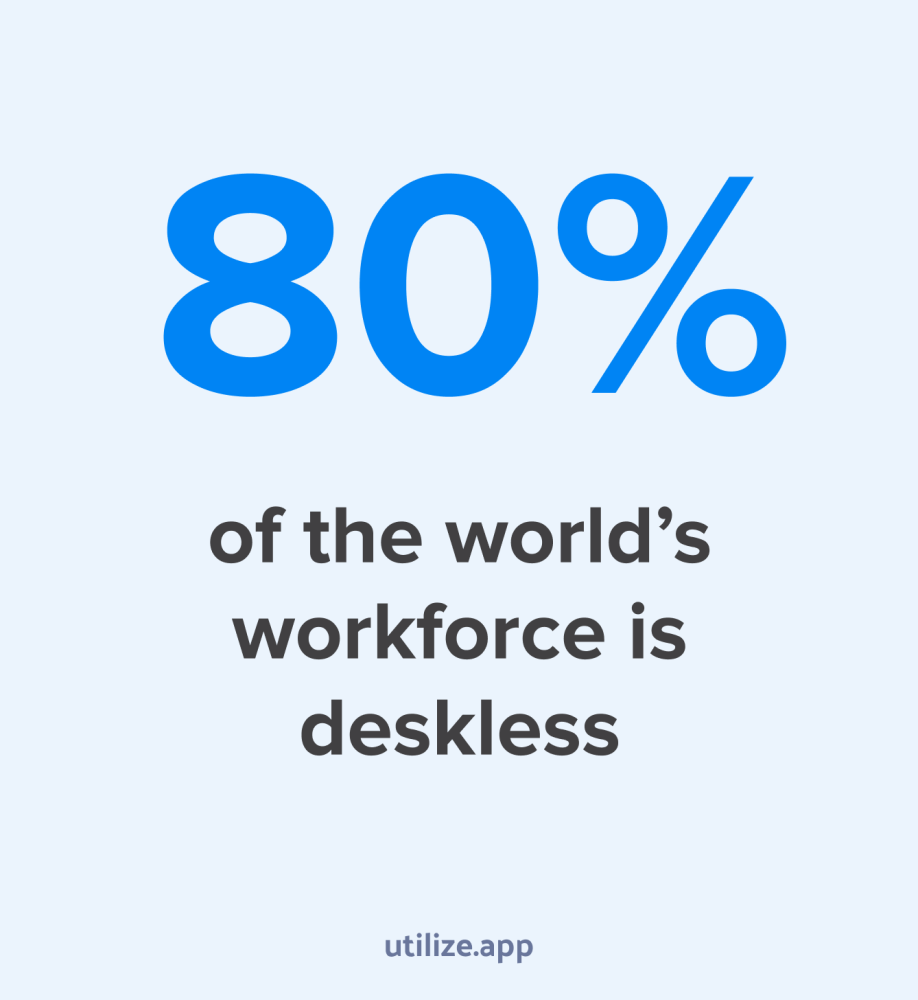
Deskless workers constitute 80% of the world’s workforce. They are everywhere, handling crucial operations of most organizations. Factory workers are the lifeline of any manufacturing business, similar to how construction workers are the backbone of their industry. Without warehouse and transportation staff, e-commerce companies will come to a halt. Jobs like home service technicians, delivery workers, door-to-door salesmen, and hoteliers involve face-to-face interactions and directly impact customer experience.
Though their jobs are critical for business operations, they still live paycheck to paycheck. They do tough jobs on the ground, and remote work is a distant dream for them, unlike desk-bound workers. The fact that only 13% of the 2.6 billion deskless workers have paid sick time tells how limited their employment benefits are.
A deskless worker, underserved or forgotten?
Like the importance of deskless workers is evident around us, there is also evidence of how we have been ignoring them.
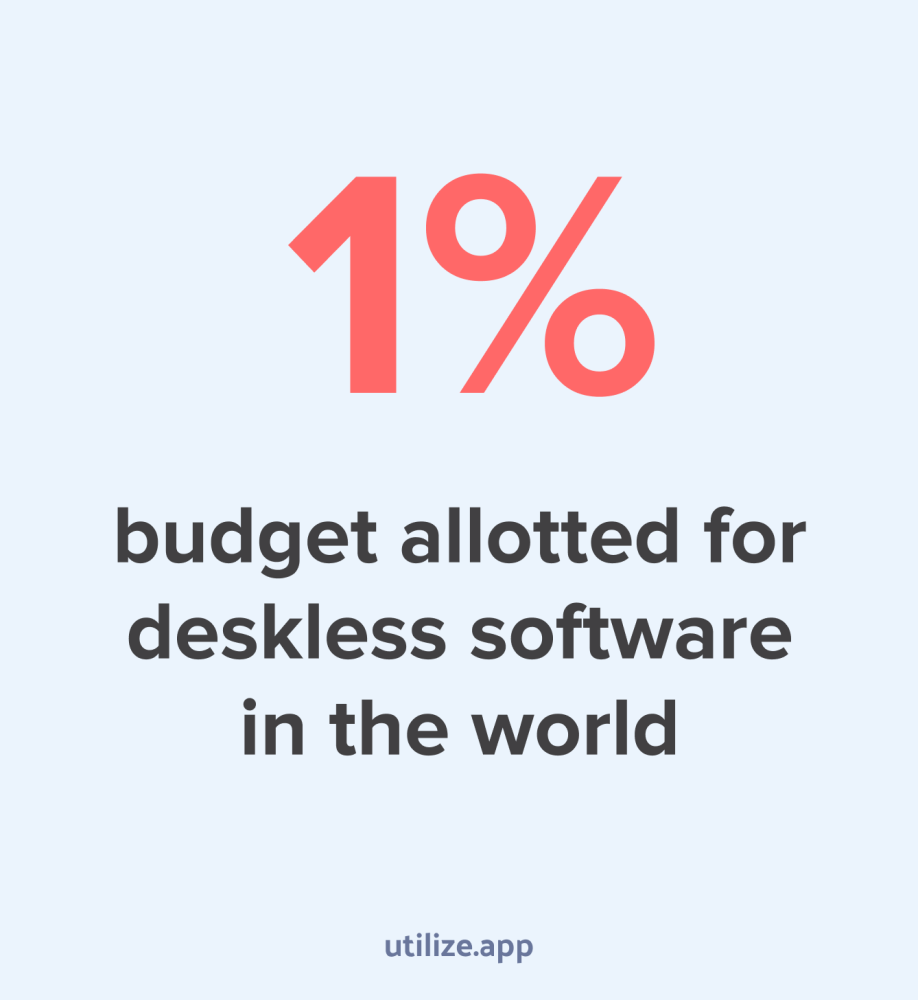
The use of software and cloud platforms to improve employee productivity is a practice that is older than two decades now. So it is surprising to know that only 1% of software spending in the world focuses on deskless operations. By not equipping teams with good deskless software, businesses cannot collect information from their core operations and will be missing out on crucial insights.
Though it seems like we can blame the founders and decision-makers for this, 76% of leaders think that it is the software vendors who overlooked deskless workers. On top of that, about two-thirds of them pointed out that their deskless workers are only able to use their productivity software when they have access to a computer. If we go by this information, deskless teams are being deliberately underserved.
But the other reason is simpler. It isn’t related to a lack of good software or budget allocation; it is more about empathy. About how easily we forget their efforts and fail to notice them. About how less we, the privileged desk-based workers, (don’t) acknowledge our deskless counterparts.
Creating the right work experience for deskless workers in a company is as important as building a hybrid or remote strategy for other employees. Let’s say you are running a paper company called Dunder Mifflin; designing the best work experience for your warehouse staff is as important as creating a hybrid strategy for The Office employees.
We are not talking about the future of work for deskless workers as much as we talk about the hybrid future for desk-based workers. At the time of writing this blog, a Google search for deskless work gave 219000 results, while the term hybrid work gives 1300M results.
Also, look at how we stopped talking about “essential workers” and “frontline workers” as the pandemic flattened. Our acknowledgment was clearly short-spanned.
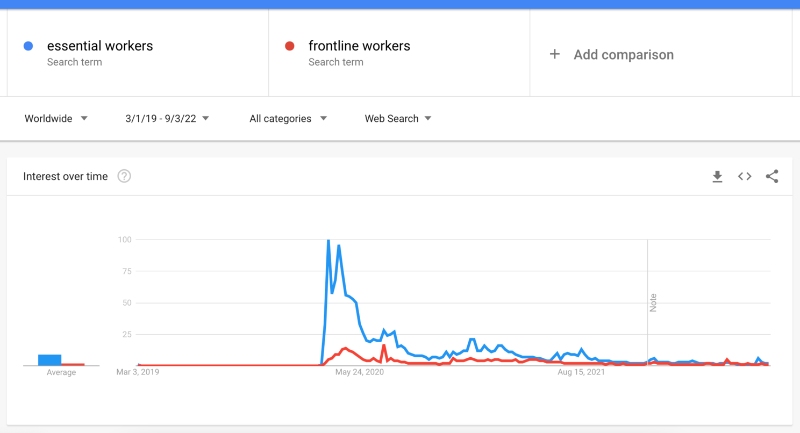
When there are factors that are not in your control and the problem looming over you becomes so big, the reasons behind it become insignificant. And all you can do is only think about the way forward. Undoubtedly there is a long way to go, but the pandemic reminded us about how dependent we are on the deskless workforce. Now it is our turn. Going forward, we, the desk-based workers, have a big role to play in improving the quality of deskless work.
A better deskless future: The role of a desk-based worker
Organizations across the world have always put efforts to make work appealing for desk-bound employees in IT, marketing, HR, IT teams, and even managers and leaders of deskless teams. These roles are knowledge-based; they retrieve and apply information for their jobs from the convenience of a desk. They are highly paid and enjoy good employment benefits. And most importantly, they are also the decision-makers for improving the deskless work experience. Being a knowledge-based job, they have closer access to information that will help them suggest or make cultural and technological improvements for deskless teams.
Now the problem is that the priorities of a desk-based worker are fundamentally different from that of a deskless worker. And these differences are usually overlooked when taking decisions for deskless teams. They are also overlooked by software vendors.
For example, work tech platforms that are used to improve how employees communicate and collaborate are usually browser-based and designed to improve the productivity of desk-bound employees. The simplest proof is the prevalence of spreadsheets even today. Also, popular productivity tools like Airtable, Notion and Trello have great desktop experiences, and their mobile experiences are always a WIP. Even if there is a feature-rich mobile experience, they are primarily designed for the mobile usage of a desk-based worker.
The priorities and needs are very different between desk-bound and deskless jobs, be it how they trust the company, what benefits they need, or even how they use technology. You can go through the following table for a more detailed comparison.
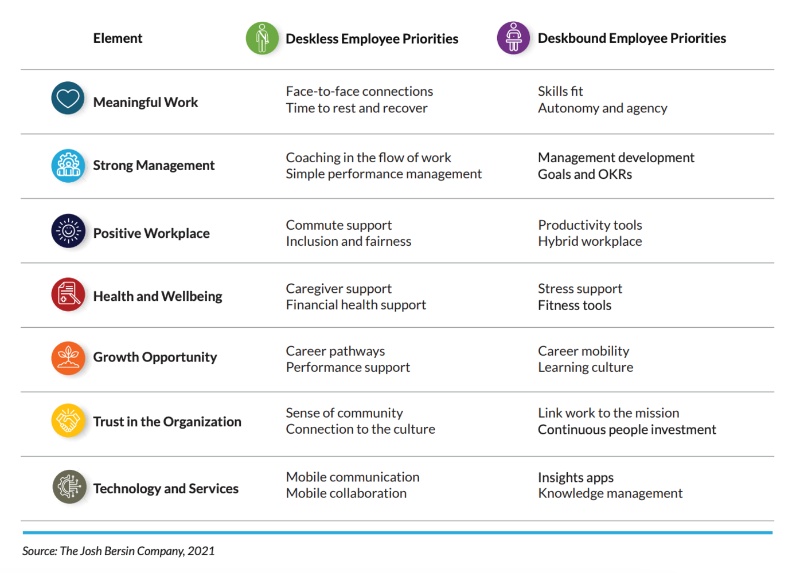
Decision makers like founders, managers, HR, and IT teams are heavily desk-bound, so the problems they are familiar with are not similar to the problems of deskless teams. We need a completely different approach to enhance their work and technology experience. More desk-bound workers should actively come forward and champion solving this problem. If your company has a deskless team, you should think about starting a dialogue internally and learning how to enhance their work experience. To give you some direction, there is a list of resources at the end of this article.
If you are still reading, you might also find Utilize useful. We are building a no-code tool specifically for deskless teams. It is a tool to convert your existing spreadsheets into simple & customized apps for your deskless teams. You can go here to try it out.
